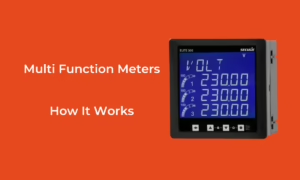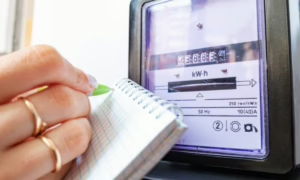Switching to solar energy is a substantial expenditure that requires careful consideration of several crucial issues. When choosing residential solar panels for your house or company, you should make an informed decision based on efficiency, cost savings, and long-term benefits. This guide includes thorough information to help you understand the process and choose the best solar panels for your needs.
Understanding the key aspects of solar panel selection is crucial, whether you’re a homeowner looking to reduce your energy costs or a company owner looking for long-term solutions. Each stage, from assessing your energy needs and roof suitability to evaluating several types of panels and selecting a reputable solar panel distributor, is important to a successful solar installation. By considering these factors, you can make an informed choice about renewable energy that benefits both the environment and the economy.
What Considerations Should I Make When Choosing Solar Panels for My Home?

Energy Needs and Goals:
Examine your energy use before deciding on the best size for your home solar panels. Examine your electric statement to determine your average usage. This allows you to calculate the amount of electricity your solar system will generate. Setting specific energy goals, whether to completely offset your electricity costs or to supplement your current energy consumption, will help you determine the size of solar panels you require for your home.
Roof Suitability:
Before installing residential solar panels, make sure your roof is adequate. Consider the roof’s orientation and inclination, as well as any shadow provided by neighboring trees or structures. South-facing rooftops often receive the greatest sunlight, enhancing the effectiveness of solar panels. Make sure your roof is in good condition and has enough space to accommodate the panels. These factors have a significant impact on your solar installation’s efficiency and energy output.
Budget:
When it comes to house solar panels, budget is an important consideration. Calculate the total cost of solar panels, installation, and any additional equipment like inverters and mounting systems. Compare several options to find a suitable price-quality ratio. Keep in mind that, while higher-efficiency panels are initially more expensive, they can result in larger long-term savings by increasing energy production.
Local Climate:
The local climate significantly impacts the performance of domestic solar panels. Areas with plenty of sunlight will naturally produce more energy than those with cloudy skies. Investigate how your local weather patterns and typical sunlight hours affect the efficiency of your solar system. Panels built to work in a variety of environments can increase energy production year-round, regardless of weather conditions.
Government Incentives and Rebates:
Utilize government incentives for solar panels, like rebates and tax credits. These financial incentives could drastically lower the initial cost of your solar panel installation. Investigate local, state, and federal programs that encourage renewable energy installation. Understanding and implementing these incentives can help reduce solar energy costs while enhancing long-term investment returns.
How Do I Determine the Efficiency of Solar Panels Before Buying?
Efficiency Ratings:
When evaluating residential solar panels, efficiency ratings are crucial. This grade indicates the percentage of sunlight that the panels can convert to useful power. In general, higher efficiency ratings (ranging from 15% to 22%) are preferable since they generate more power using the same amount of sunlight. High-efficiency panels may be more expensive at first, but they can result in greater long-term savings by optimizing energy output, especially if you have limited roof space.
Temperature Coefficient:
The temperature coefficient of home solar panels is another essential consideration. This statistic measures how well the panels operate in high-temperature conditions. Panels with lower temperature coefficients see less efficiency loss as the temperature rises. This is especially significant in warmer climates, where high temperatures can lower the total energy production of your solar panels. Choosing panels with a favorable temperature coefficient offers more constant performance and energy yield all year.
Performance Warranties:
When it comes to home solar panels, performance guarantees are vital. These guarantees assure that your panels maintain a certain level of efficiency over time, typically for 25 years. For example, a strong performance warranty may ensure that the panels continue to produce at least 80-90% of their original output after 25 years. This gives you peace of mind and protects your investment by guaranteeing that your solar panels have provided energy consistently for decades.
Brand and Reviews:
Brand and user reviews of household solar panels offer valuable insights into their dependability and performance. Investigate well-known, dependable brands with a proven track record in the solar sector. Read user reviews to better understand real-world performance and potential issues. Reliable brands typically provide longer warranties and support services, ensuring that you receive high-quality panels that meet your energy needs effectively. Prioritize brands that have gained numerous awards for their longevity and efficiency.
What Types of Warranties Should You Look for When Buying Solar Panels?
Product Warranty:
A product warranty is necessary when purchasing solar panels since it covers flaws in materials or workmanship. Standard product warranties typically last from 10 to 25 years. This warranty ensures that if there are any manufacturing flaws or component concerns, you will receive free repairs or replacements. A lengthier product guarantee implies that the manufacturer is confident in the longevity and quality of their panels, giving you peace of mind and long-term protection on your investment.
Performance Warranty:
Performance guarantees are vital for ensuring that your solar panels continue to generate a certain proportion of their initial power output over time. Most performance warranties say that the panels will continue to produce 80-90% of their original output even after 25 years. This warranty is critical because it ensures that your panels will remain efficient and productive for the remainder of their life, safeguarding your investment and providing ongoing energy savings over time.
Installation Warranty:
The installation business offers a warranty that covers any faults encountered during the installation process. This warranty often covers issues with mounting, wiring, and the whole setup of your solar panel system. Installation warranties vary in length, but a good one should last at least one to five years. This protection guarantees that any installation problems or flaws will be remedied at no additional cost, ensuring that your system runs safely and efficiently.
Inverter Warranty:
Inverters are an essential part of any solar panel system, transforming the direct current (DC) generated by the panels into alternating current (AC) for use in your home. As a result, it is critical to have a robust guarantee for your inverter. Inverter warranties typically range from five to ten years. Because inverters are more likely to fail than panels, a good warranty assures that you can get a replacement or repair if necessary, allowing you to keep your entire solar power system running efficiently and effectively.
Different types of solar panels.
Liveguard Monocrystalline panels are known for their excellent efficiency and longevity. They are made up of a single silicon crystal structure, which allows them to convert sunlight into energy very efficiently. Their constant appearance and high performance make them perfect for use in residential and commercial applications where space is limited but efficiency is essential.
Panasonic Polycrystalline panels, manufactured from molten silicon fragments, have a somewhat lower efficiency than monocrystalline panels but are less expensive. They provide a practical choice for firms looking to cut costs while maintaining high performance.
Thin-film panels attach layers of photovoltaic materials to a substrate, such as glass or plastic. They are light and flexible, making them excellent for unconventional applications where rigid panels would not work. Thin-film technology is less efficient than crystalline panels, but it offers more design and installation options.
Bifacial panels generate power on both the front and back sides by capturing sunlight reflected off objects like rooftops or the ground. This dual-sided capability boosts overall energy output, particularly in areas with reflective surfaces, boosting the efficiency of solar arrays.
Conclusion
Choosing the right residential solar panels needs careful consideration of several critical factors to ensure a solid investment in renewable energy. Understanding your specific energy needs, available funds, and the compatibility of your roof are all critical first steps. The local climate, as well as the efficiency ratings of various panel types, will influence your decision. Evaluating warranties, which include product and performance guarantees, ensures that your solar investment is dependable and protected for the long term.
Additionally, looking for reputed solar panel distributors and manufacturers with a proven track record will help to ensure quality and customer satisfaction. By carefully analyzing these variables and making informed decisions, homeowners can choose solar panels that not only save money on power but also help the environment. Investing in domestic solar panels not only improves energy efficiency but also helps to ensure a better future for future generations.
Sun-AP Ecopower is one of the leading solar panel distributors in India, providing high-quality solar products nationwide.




